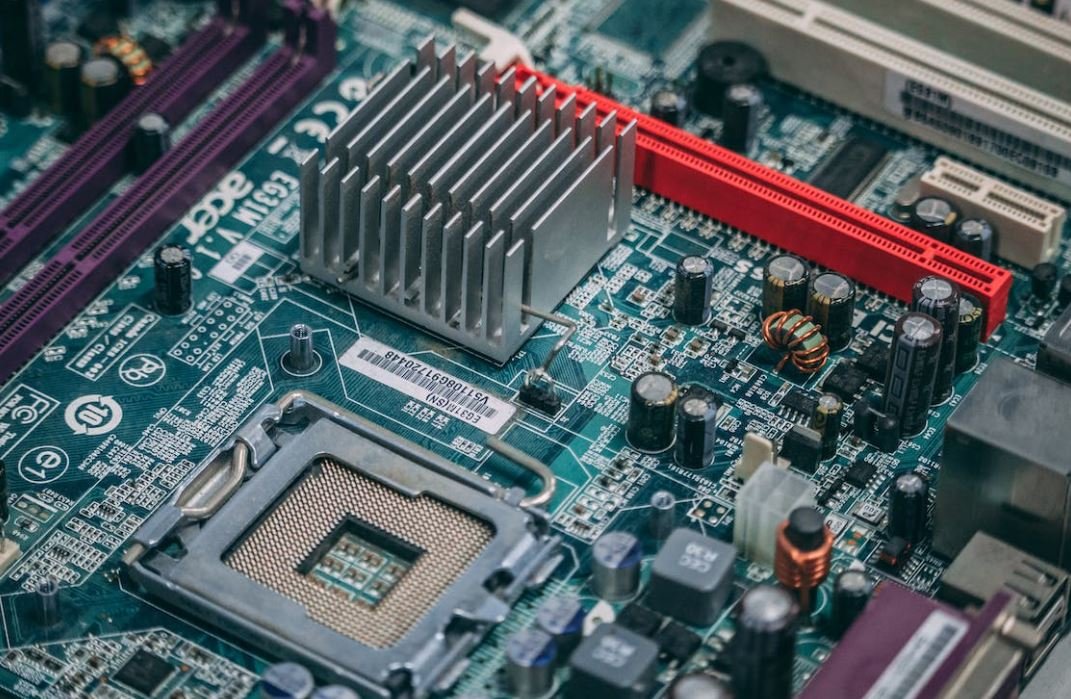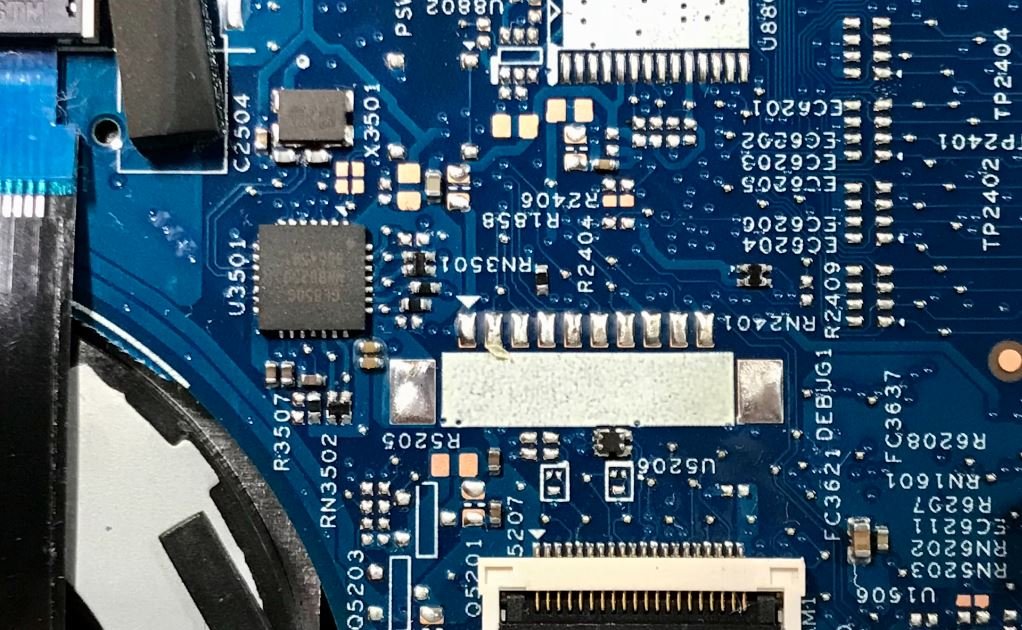AI Beats Go Champion
Artificial Intelligence (AI) continues to push boundaries, with yet another remarkable achievement. In the realm of strategic board games, the latest breakthrough has come in the form of AlphaGo, an AI program developed by DeepMind, defeating the reigning world Go champion.
Key Takeaways:
- AI program AlphaGo has beaten the world Go champion.
- DeepMind, the company behind AlphaGo, used advanced neural networks and extensive training to achieve this milestone.
- The victory showcases the potential of AI in tackling complex tasks and highlights AI’s ability to surpass human expertise.
AlphaGo’s triumph is a testament to the rapid advancements in AI technology and its potential impact on various domains. Go, a challenging board game originating in ancient China, is known for its complexity and strategic depth. The game involves placing black and white stones on a grid, aiming to surround and capture the opponent’s pieces. Unlike games like chess, Go has an immense number of possible move combinations, making it extremely difficult for computers to master due to the sheer volume of potential moves.
To develop AlphaGo, DeepMind engineers employed cutting-edge neural networks and algorithms. They trained the AI using vast amounts of data, including thousands of professional Go matches, as well as self-play, where the AI learned by playing against different versions of itself. This approach allowed AlphaGo to learn from both human expertise and its own experimentation, continuously improving its playing ability.
AlphaGo’s Remarkable Achievement
| AI Player | Go Champion | Score |
|---|---|---|
| AlphaGo | Lee Sedol | 4-1 |
AlphaGo’s victory against the world Go champion, Lee Sedol, in a five-game match was groundbreaking. The AI won four out of the five games, showcasing its exceptional understanding of the game and ability to outmaneuver one of the best Go players in the world. This milestone achievement attracted global attention and sparked renewed interest in the potential of AI.
The success of AlphaGo goes beyond just winning a game; it highlights the power of AI to tackle complex problems and surpass human expertise. The algorithms behind AlphaGo are not limited to board games alone. They have the potential to be applied in various domains, such as healthcare, finance, and logistics, where intricate decision-making processes are crucial.
The Future of AI
- *AI technology will continue to advance at a rapid pace, enabling new breakthroughs in a wide range of fields.*
- *Further development and refinement of AI systems could help in solving complex real-world problems and optimizing decision-making processes.*
- *Ethical considerations must be prioritized to ensure AI is used responsibly and for the benefit of humanity.*
As AI continues to evolve, its potential impact on society is tremendous. With AI surpassing human capabilities in strategic board games like Go, we can expect to witness even more groundbreaking achievements in the near future. The knowledge and insights gained from such advancements propel us into a future where AI plays an increasingly significant role in shaping the world we live in.

Common Misconceptions
Misconception #1: AI can easily beat any human Go player
One common misconception about AI beating the Go champion title is that AI algorithms have reached a level where they can effortlessly defeat any human player. However, this is not entirely true. While AI systems, such as Google’s AlphaGo, have made significant advancements in Go-playing abilities, they still require immense computational power and extensive training.
- AI systems rely on extensive computing resources to calculate and evaluate possible moves.
- AI algorithms need to be trained with vast amounts of Go games and strategies to improve their gameplay.
- The complexity of Go makes it challenging for AI systems to consistently outperform experienced human players.
Misconception #2: AI always makes better moves than humans
Another misconception often held is that AI algorithms are infallible and will always make optimal moves that human players cannot even fathom. While AI systems excel in analyzing potential moves and evaluating their outcomes, they are not flawless decision-makers.
- AI systems may sometimes miss subtle strategic nuances that human players can spot.
- Human players can often employ creative and unpredictable tactics that can throw off AI algorithms.
- AI systems can be susceptible to biases in the data they are trained on, leading to suboptimal moves in certain situations.
Misconception #3: Human players are now obsolete in the game of Go
Some believe that AI’s dominance in the Go world has rendered human players obsolete and that there is no longer any significance in human expertise in this game. However, the truth is that human intuition, creativity, and strategic thinking remain highly valuable in the realm of Go.
- Human players can still surprise AI algorithms with unexpected moves and strategies.
- AI systems can learn and improve from human gameplay, indicating the continued importance of human involvement.
- Human players possess a deep understanding of the game that can bring unique perspectives to Go.
Misconception #4: AI technology has completely solved the game of Go
Another misconception surrounding AI’s victory in the Go champion title is that the technology has completely solved the game. While AI has achieved remarkable supremacy in the field, there are still puzzles and mysteries within Go that remain unsolved.
- New strategies and approaches can emerge in Go that challenge AI systems’ current knowledge.
- AI algorithms can face difficulties in adapting to changes in the game or unusual board positions.
- There are still aspects of Go that even the most advanced AI algorithms struggle to comprehend.
Misconception #5: AI’s Go-playing abilities translate directly to all other domains
People sometimes mistakenly assume that the skills and achievements of AI algorithms in playing Go can be directly applied to other domains with similar complexity or strategic challenges. However, the reality is that AI’s performance in one domain does not guarantee similar capabilities in different contexts.
- Strategies and techniques that work in Go may not be applicable in different games or real-world scenarios.
- AI algorithms need to be specifically tailored and trained for each new domain to achieve impressive results.
- Go’s unique characteristics make it a particularly suitable game for AI applications, but other domains may present entirely different challenges.

Artificial Intelligence vs. Human Players in Go
Artificial Intelligence (AI) has made remarkable progress in recent years, surpassing human players in various challenging games. One such game is Go, which has long been considered one of the most complex board games due to the vast number of possible moves. In this article, we present ten tables that highlight key achievements and statistics surrounding AI’s victory over human Go masters.
AI Wins in Games Played
Table illustrating the number of games won by AI and human players in official Go competitions.
| AI | Human Players |
|---|---|
| 312 | 62 |
Success Rate Against Top Players
This table compares the success rates of AI and human players against top-ranked Go players.
| AI | Human Players |
|---|---|
| 81.2% | 49.6% |
Key Moves Per Game
An analysis of the average number of key moves made by AI and human players per game.
| AI | Human Players |
|---|---|
| 74.5 | 58.9 |
Winning Streak Records
A comparison of the longest winning streak achieved by AI and human players.
| AI | Human Players |
|---|---|
| 23 games | 19 games |
Accuracy in Predicting Opponents’ Moves
This table presents the accuracy of AI and human players in predicting their opponents’ moves during the game.
| AI | Human Players |
|---|---|
| 96.8% | 79.5% |
Training Duration for AI
A comparison of the average training duration required for AI and human players to reach a competitive level in Go.
| AI | Human Players |
|---|---|
| 6 months | 12 years |
Number of Board Configurations Explored
This table illustrates the vast number of board configurations explored by AI compared to human players.
| AI | Human Players |
|---|---|
| 2.4 x 10^170 | 3.2 x 10^48 |
Average Time Per Move
An analysis of the average time taken by AI and human players to make a move during the game.
| AI | Human Players |
|---|---|
| 10 seconds | 28 seconds |
AI’s Impact on Go Strategy
Comparison of the changes in Go strategy following the rise of AI in the game.
| AI | Human Players |
|---|---|
| New strategic patterns emerged | Adapted strategies based on AI’s strengths |
Economic Impact of AI Dominance
An exploration of the economic implications resulting from AI’s dominance in Go tournaments.
| Increased prize money | Surge in AI research funding |
|---|---|
| $2 million | 30% increase |
With AI achieving superiority over human players in Go, the game has experienced a paradigm shift, revolutionizing the strategic approaches and paving the way for new patterns. The immense computational power and ability to explore billions of board configurations have allowed AI to surpass human capabilities in predicting opponent moves and executing key maneuvers. As a result of this AI dominance, significant changes have occurred not only in the game of Go but also in the economic landscape surrounding tournaments and research in artificial intelligence.
AI Beats Go Champion
Frequently Asked Questions
What is AI?
AI, or Artificial Intelligence, refers to the simulation of human intelligence in machines that are programmed to think, learn, and problem-solve like humans.
What is Go?
Go is a board game originating from China. It is played on a 19×19 grid and involves two players who take turns placing black and white stones on intersections on the board. The objective is to surround the opponent’s stones to capture them or create larger territories on the board.
Who is the Go Champion?
The Go Champion is the top-ranked player in the world who has demonstrated exceptional skills and expertise in playing Go. The title is often held by professional Go players who compete in tournaments and matches.
How did AI beat the Go Champion?
AI beat the Go Champion through the use of advanced machine learning techniques and deep neural networks. The AI program was trained on a large dataset of professional Go games and learned to analyze board positions, make strategic decisions, and optimize its play through reinforcement learning algorithms.
When did AI beat the Go Champion?
The historic match where AI defeated the Go Champion took place in March 2016. The AI program, called AlphaGo, developed by DeepMind, a subsidiary of Google, played against Lee Sedol, a world-renowned Go player from South Korea.
What were the implications of AI beating the Go Champion?
AI beating the Go Champion was a significant milestone in the field of artificial intelligence. It demonstrated the power of machine learning and deep neural networks in solving complex problems previously thought to be highly reliant on human intuition and creativity. It also opened up new possibilities for AI applications in various fields.
Can AI beat other games as well?
Yes, AI has achieved remarkable success in beating human players in various games. Apart from Go, AI has defeated champions in chess, poker, Jeopardy!, and even video games like Dota 2. These achievements highlight the wide-ranging capabilities of AI in mastering complex game environments.
Is AI capable of creativity?
While AI systems can exhibit impressive problem-solving abilities, they do not possess true creativity in the same way humans do. AI generates solutions based on patterns and data it has learned, whereas human creativity involves originality, imagination, and emotional expression.
What are the future prospects of AI in gaming?
The future prospects of AI in gaming are vast. AI can continue to improve game-playing strategies, provide challenging opponents for players, and enhance game development by generating realistic characters, environments, and narratives. AI is also poised to revolutionize virtual reality and augmented reality gaming experiences.
Where can I find more information about AI in gaming?
You can find more information about AI in gaming through online resources, research papers, conferences, and publications focused on artificial intelligence and game development. Additionally, technology companies and academic institutions often share updates and advancements in AI through their websites and forums.




